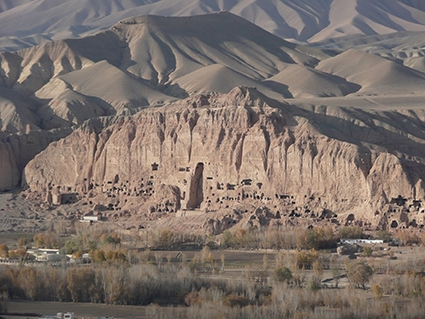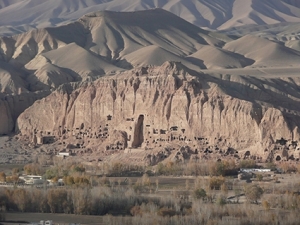Powering Afghanistan: the Controversial TUTAP
Afghanistan has been rocked by disputes over power project TUTAP- electricity power cables planned to be laid from Turkmenistan through Uzbekistan, Tajikistan and Afghanistan to Pakistan.
In terms of power energy and international business, this project is another complement of CASA-1000, as only through it does a source of energy come from Turkmenistan, with a number of large gas turbine power plants under construction there. By 2020, 14 such power plants are expected to be in operation, some of which are to meet domestic demands, and some, such as the power station ‘Watan,’ in Lebap province, with an electricity capacity of 254 MW, to transmit electricity to Afghanistan. The Afghan LEP area will pass approximately the same route as the CASA-1000 power transmission line.
In Afghanistan, this issue took ethnic overtones when the idea to change the planned TUTAP route was raised by a group of MPs of the lower house representing Hazara. The Hazaras are a Persian-speaking people who mainly live in central Afghanistan, Hazara Town, in Balochistan. At their request, power lines would pass not through the Salang Pass, but through the province of Bamiyan, which meant a deviation to the west of the route proposed by the government. When this proposal was not supported by the President of Afghanistan, conflict broke out.
From a purely technical point of view, the President of Afghanistan, Ashraf Ghani, is right. Changing the route of power transmission line would require additional costs for research and construction for the high-altitude conditions. This would entail an overall increase in cost of the project and the term of its implementation. Building power lines in mountainous areas is difficult and takes time- in some cases, electric poles are set into place by helicopter.
However, it is possible to understand the position of the Hazara MPs, as setting up a major transmission line through Bamiyan province would give a powerful boost to the local economy and significantly raise the well-being of residents. Failure to take up this suggestion was quickly lauded as an expression of a policy of suppression of Afghan national minorities: what was a purely technical and economic issue went far beyond the theme of Afghanistan's energy sector and quickly became a pretext to setting old tensions.
Currently, the parties are more or less agreed. The leaders of the Hazara have substantially alleviated their rhetoric. The threat of large-scale riots has apparently passed. Ashraf Ghani promised Hazara that they would get spin-off power lines to give the province of Bamiyan 300 MW instead of 30 MW as per the initial draft. This is a very serious concession. This capacity allows, for example, development in the province of a mining industry.
Nevertheless, the question remains as to whether further such conflicts may break out, for example, over the distribution of gas, which is to arrive in Afghanistan through the TAPI gas pipeline. In economic terms, many provinces of Afghanistan have the urgent need for economic development and, as a result, strengthening of the economy basis - energy. In the political aspect of the dispute over TUTAP, it showed how fragile Afghan national unity is, and how easy it is to ignite inter-ethnic tensions and conflicts.
What could be done in this situation? From my point of view, the main means for preventing acute international conflicts on an economic basis is a long-term plan for economic development in Afghanistan. For the purpose of economic development of the country, electricity should run through all provinces of the country, in all districts, in every village.
In other countries, such as Russia, the development of the electric power industry has developed and continues to develop on the basis of long-term plans or strategies, set out 20-30 years ahead, which take into account future needs for sources of energy and plan for the construction of power plants and power lines. In Afghanistan, it is also necessary to highlight the fact that the country does not have enough of its own energy sources, and that network construction is difficult due to mountainous terrain. Developers must first plan the most rational routes for the main transmission lines, taking into account all the difficulties of the terrain, from which point it is rational to place the substation and dilute to the local distribution network in each locality. Electricity in the early stages can be imported, but then it is necessary to strengthen and build the country’s own sources, particularly hydroelectric power stations.
If such a plan was drawn up, in this case the chance of conflict would be much lower, as the representatives of each province would know how much power they are entitled to and when the power line is to be installed in a particular area. Also, the welfare of each individual province depends on the implementation of the entire plan as a whole.
The plan of the electrification of Afghanistan requires, at this stage, coordination with neighboring countries, at the very least with Turkmenistan, Uzbekistan and Tajikistan. There are other countries interested, such as China, but Chinese companies in Afghanistan state that there is clearly not enough power for large mining projects. At the same time, Russia has an interest as an electrical equipment or building materials supplier and as a possible investor in the construction of large power plants in Afghanistan.
In my opinion, it would be better to develop a future Afghanistan Electrification Plan in the framework of the SCO. The Shanghai Cooperation Organization (SCO), or Shanghai Pact is a Eurasian political, economic, and military organization which was founded in 2001 in Shanghai by the leaders of the People's Republic of China, Kazakhstan, Kyrgyz Republic, Russian Federation, Tajikistan, Uzbekistan, India and Pakistan. Its aim is to conduct scientific and research works, prepare investment plans, and establish coordination on security matters, since power lines must be protected from possible attacks by militants. Such inclusion would better enable Afghanistan, with international cooperation, to deal with arising issues much faster and more easily.
Dimitri Dolaberidze











